The recipe for the best lightweight electric mountain bike is a hotly debated topic.
Some manufacturers co-develop drive units with motor specialists, while others fit off-the-shelf models.
Other producers think lightweight ebikes should have a cross-country bias, while others go all-in with big-travel rigs designed for enduro racing. Most opt for a trail-focused middle ground.
Whatever approach is taken, weight, battery life and power need to be balanced perfectly to create a bike that feels much more like a regular mountain bike in its weight and handling, while also enabling the user to benefit from the extra assistance of the motor.
In this guide, we’ve brought together the best lightweight eMTBs as tested by the BikeRadar MTB team. Between them, the team have tested all the entries in our pick of the best electric mountain bikes and tracked the development of this burgeoning bike category.
They're also the brains behind our annual Electric Mountain Bike of the Year category in our industry-leading Bike of the Year mega-test.
For more on what to look for when buying a lightweight eMTB, read our buyer’s guide at the bottom of this article.
Best lightweight electric mountain bikes
Focus JAM2 SL 9.9
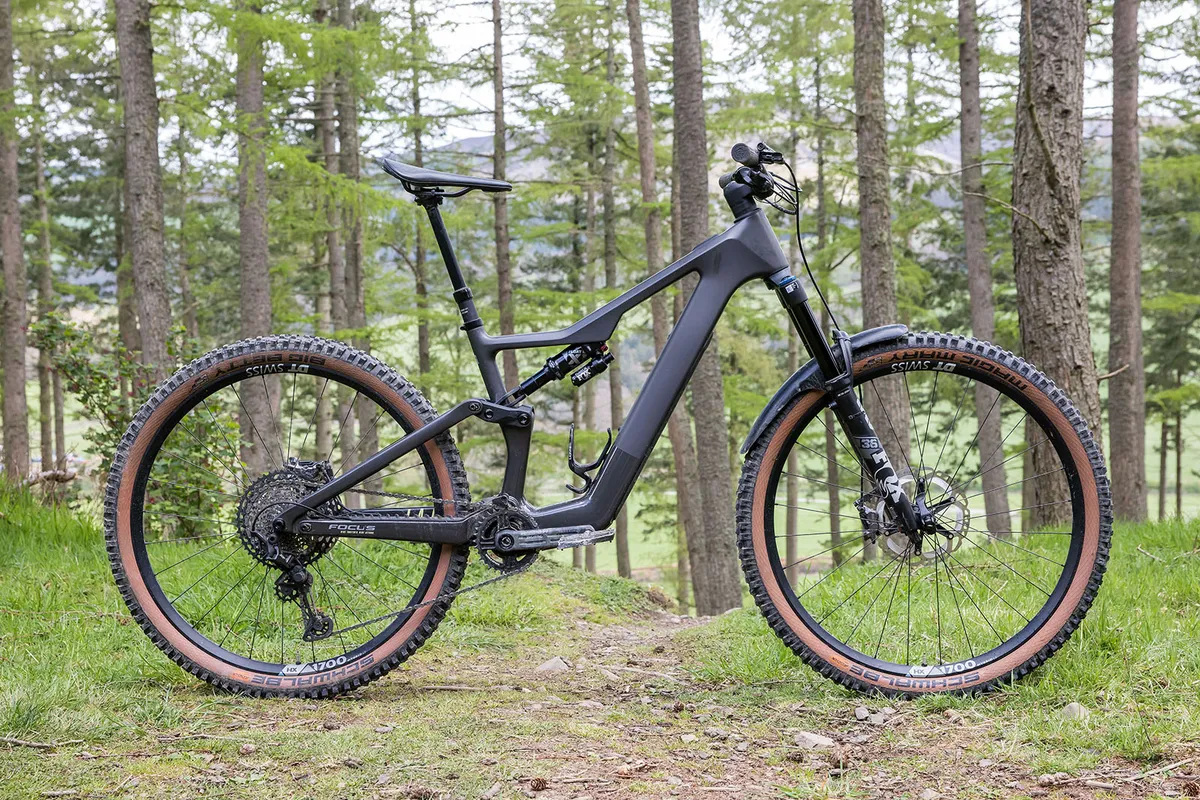
- £7,499 / €8,499 / AU$14,499 as tested
- Pros: Impeccable performance; powerful and frugal motor
- Cons: Stock tyres are inadequate; Fauza ring controller feels cheap
The Focus JAM2 SL is the German brand’s lightweight electric mountain bike. It has 150mm of travel and is powered by Fazua’s Ride 60 motor and a 430Wh battery.
With its two geometry-adjusting flip chips and capable suspension, we found the JAM2 SL to be right at home on both trail and enduro terrain, making the bike seriously fun on a variety of trails.
The only thing holding the Focus back was the lightweight tyres, though this is easily corrected.
Although a lot of money, the £7,499 price tag represents good value when you study the Focus’ spec. Yes, you’ll need to upgrade the tyres, but once you’ve done so, that’ll be it.
Orbea Rise H10
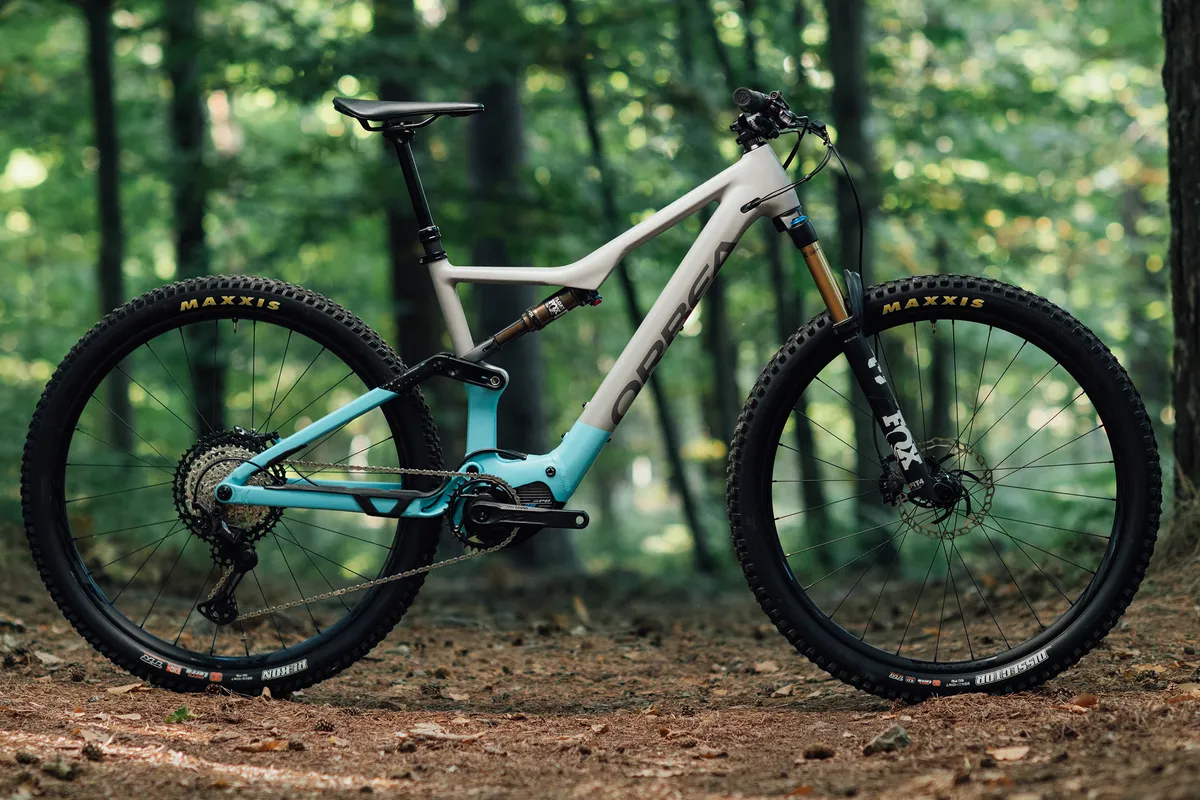
- £6,623 / $8,000 / €7,100 / AU$12,600 as tested
- Pros: Well-finished alloy frame; throttled-down Shimano EP8 motor gives natural ride feel
- Cons: Limited seatpost clearance; uncomfortable saddle
The Orbea Rise H10 is an aluminium ebike that sits somewhere between the lightweight and ‘full-power’ categories. It boasts a larger battery than most SL options, at 540Wh, and is powered by a 60Nm Shimano EP8 motor that’s throttled down to limit its torque and extend range.
The H10’s frame has nicely smoothed welds at the top tube junctions that could fool you into thinking it’s carbon, and side-on it’s not obvious there’s a battery in the down tube either. The geometry is trail-oriented and modern, but not cutting-edge.
With its higher-torque motor, the Rise feels more powerful on climbs and can handle rougher, steeper trails.
Specialized S-Works Turbo Levo SL
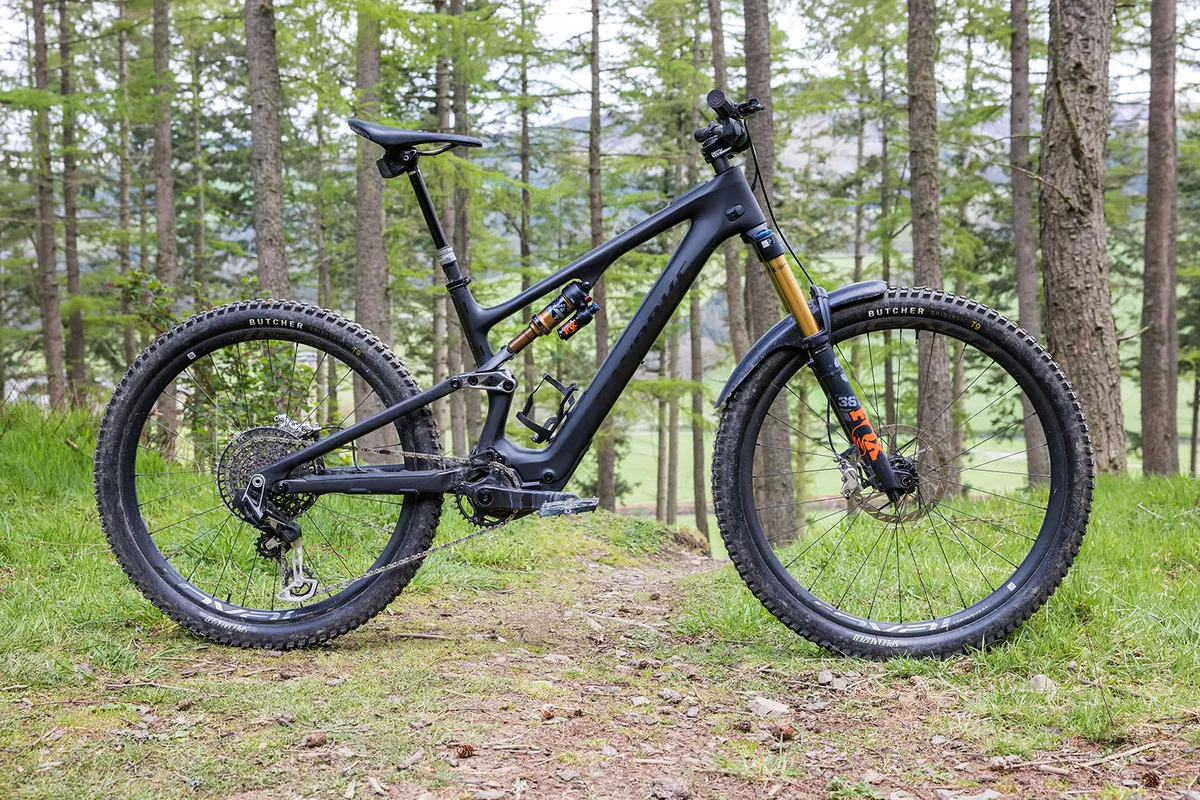
- £13,000 as tested
- Pros: Incredibly wide performance band; adaptable geometry
- Cons: Inadequate rear-tyre casing; cost
The latest S-Works Turbo Levo SL uses Specialized’s ‘semi-skimmed’ Turbo SL 1.2 motor that has 50Nm of torque and 320W of power. A 320Wh battery is tucked into the sleek carbon down tube.
Boasting 160/150mm of travel, the bike feels comfortable on all types of terrain, while maintaining an impressive capability when the going gets tough.
Specialized has given the bike adjustable geometry, and allows the bike to be run as a mullet setup.
The spec list, featuring Fox Factory suspension and SRAM’s XX Eagle Transmission, combined with its capable geometry, makes the bike a masterpiece at pace, though this comes at a cost.
Whyte ELyte 150 Works

- £9,999 as tested
- Pros: Excellent geometry; supple suspension; brilliantly specced; relatively light; good battery life
- Cons: Motor cadence sweet spot; 36t chainring and weedy stock rear tyre
Whyte's debut lightweight carbon fibre eMTB seriously impresses and is one of the best lightweight eMTBs currently on the market.
Sporting a Bosch Performance Line SX motor with 55Nm of torque and up to 600Nm of power, the seated climbing position is comfortable and neutral but you need to ride hard to get the most from it on descents.
This halo model runs on a 150mm-travel Fox 36 Factory Fork and a Float X Factory Shock with 142mm travel. Rounding out the build is a SRAM XO Eagle AXS Transmission groupset, Hope Tech4 V4 brakes and Whyte's own carbon fibre rims laced to Hope Pro 5 hubs.
We found the bike's handling to be calm and composed, with everything feeling as though it's in the right place.
We'd recommend swapping the chainring to a 32t option because the motor favours a higher cadence and even superhuman riders will struggle to keep momentum up.
Haibike Lyke CF 11
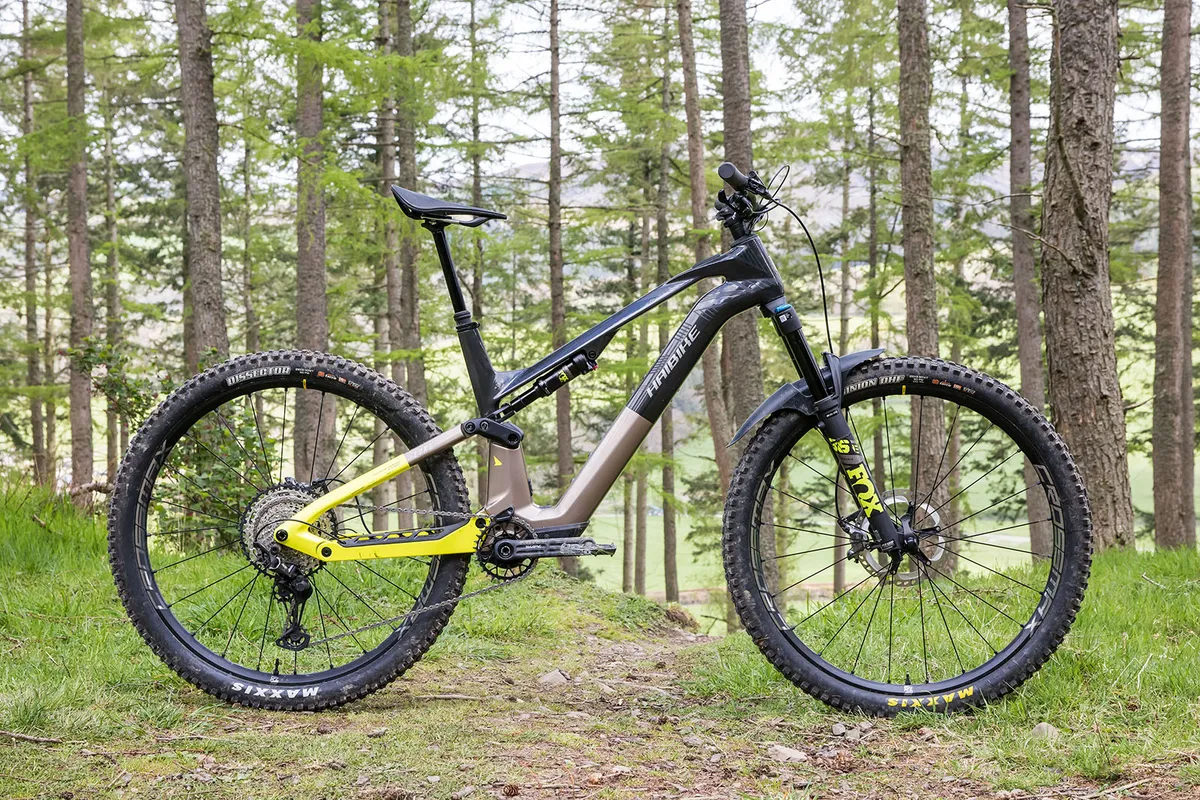
- £6,799 / €7,999 as tested
- Pros: Sorted suspension; value for money
- Cons: Unsuitable tyres; messy cable routing
Haibike’s debut in the lightweight eMTB market combines sorted geometry and suspension with a powerful and frugal motor for impressive performance.
The Lyke CF 11 provides plenty of support uphill, with the Fazua Ride 60 motor delivering 60Nm of torque and up to 450W of power taken from a 430Wh battery located in the down tube of the carbon frame.
Pointed downhill, the Haibike punches well above its diminutive 140mm-travel suspension figure; its kinematics and balanced geometry eke out more performance than you’d initially expect.
Spec-wise, the Shimano XT /SLX hybrid groupset, Fox 36 Performance fork and Fox Float DPS Performance shock help make this bike seriously good value for money.
Forestal Cyon Neon
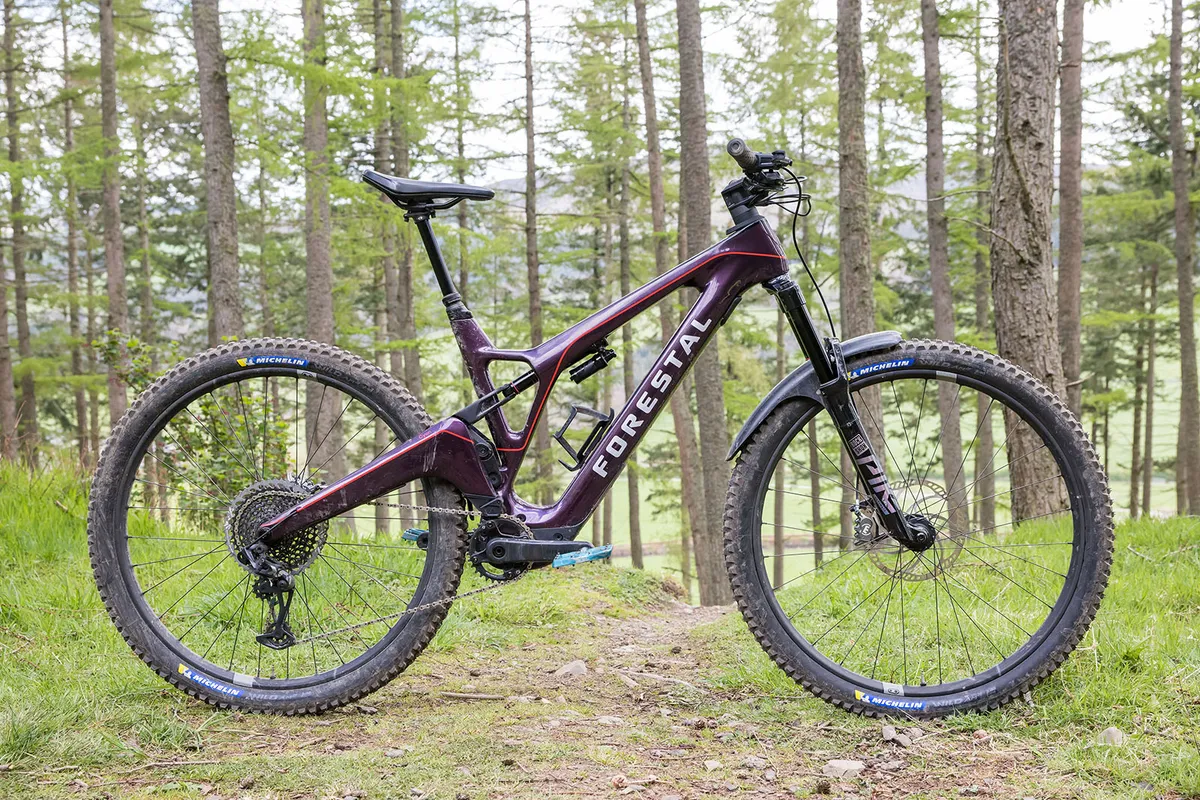
- £10,999 / $11,799 as tested
- Pros: Supportive suspension; balanced geometry
- Cons: Pike fork is under-gunned; stock tyres not suitable
Forestal’s 150mm-travel Cyon is a solid performer, typifying the qualities of the best trail bikes.
The Bafang-built EonDrive motor provides a punchy 60Nm of torque and 250Wh of nominal power, which comes from a 360Wh battery in the down tube.
Not one for minimalists, Forestal’s touchscreen control panel boasts a plethora of in-built functionality such as GPS, WiFi, maps, ride recording and statistics.
On the trail, the Cyon’s stiffer-than-average setup makes the bike less comfortable than others at slower speeds, but provides stability when it’s ridden hard, nullifying the harshest of bumps.
We found the RockShox Pike Ultimate to be a little under-gunned, being easily overwhelmed by the capability of the rear end.
Scott Lumen eRide 910
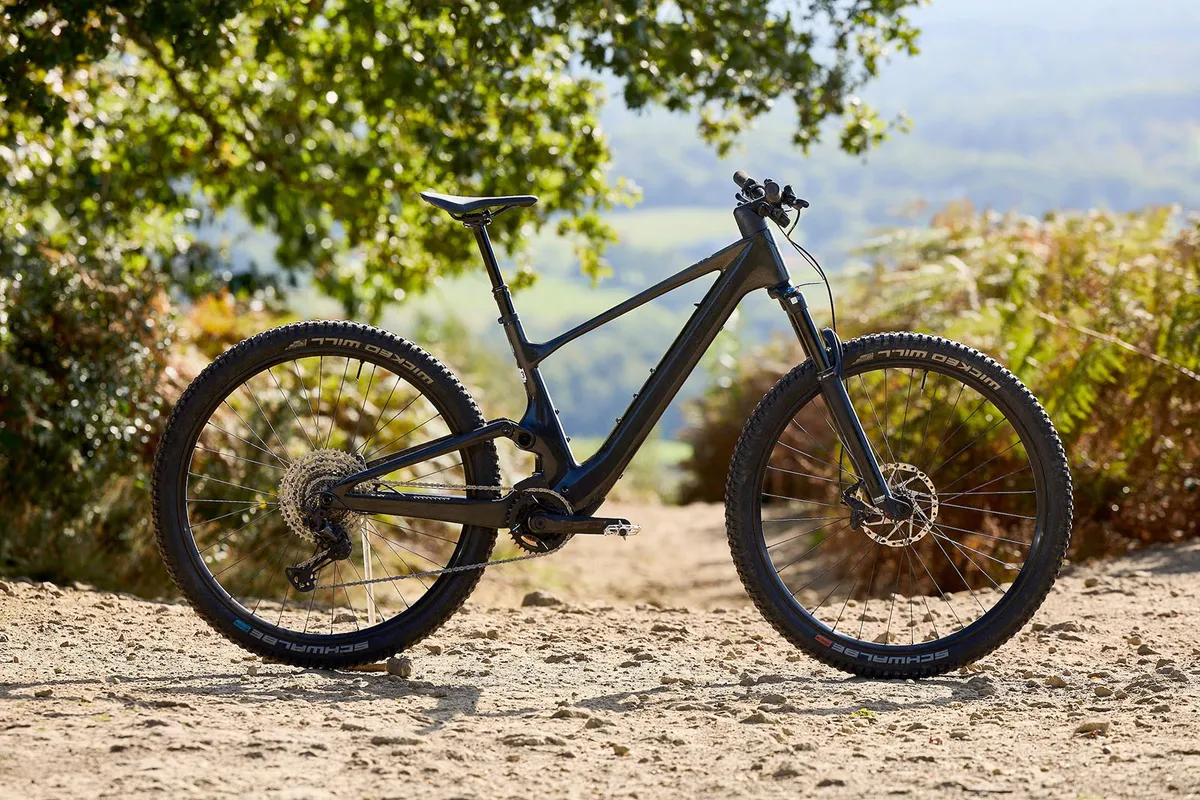
- £6,499 as tested
- Pros: Punchy motor makes climbing fun; rear suspension is capable up and downhill
- Cons: Tyres limit descending potential; a lot of levers and buttons for your left thumb
With its integrated rear shock and sleek carbon frame, the Scott Lumen cuts a futuristic silhouette. Boasting 130mm of travel and 29in wheels, the Lumen is designed to cover ground and smash out local trail laps.
Powered by TQ’s HPR50 motor, it dishes out a punchy 50Nm torque and 300W peak power and is powered by a 360Wh integrated battery. The motor packs a punch for its size and has plenty of power to help you up the climbs.
The Lumen’s 130mm of rear-wheel travel is impressively capable and a highlight of the bike, giving it the capacity to handle some aggro trail riding. Like many others in this category, we’d upgrade the tyres to maximise this bike’s potential.
Why you can trust BikeRadar
BikeRadar has been an authority on bikes and cycling tech since its inception in 2007, delivering the world’s best riding advice.
We have experts testing all types of bikes, parts, clothing and accessories, from road, mountain and gravel bikes to commuting, bikepacking and electric bikes.
Our reviews are always editorially independent – with no exceptions. Our reviewers comprehensively test all products in the real world, always reflecting on performance, value and the wider market when delivering their verdicts and review ratings.
We have more than 15,000 product reviews available at your fingertips, as well as expert buying, maintenance, training, skills, health and fitness advice.
Our annual Bike of the Year test is an industry benchmark and the BikeRadar team consists of some of the most experienced riders and testers in the business.
Lightweight electric mountain bike buyer’s guide
How much should a lightweight eMTB weigh?
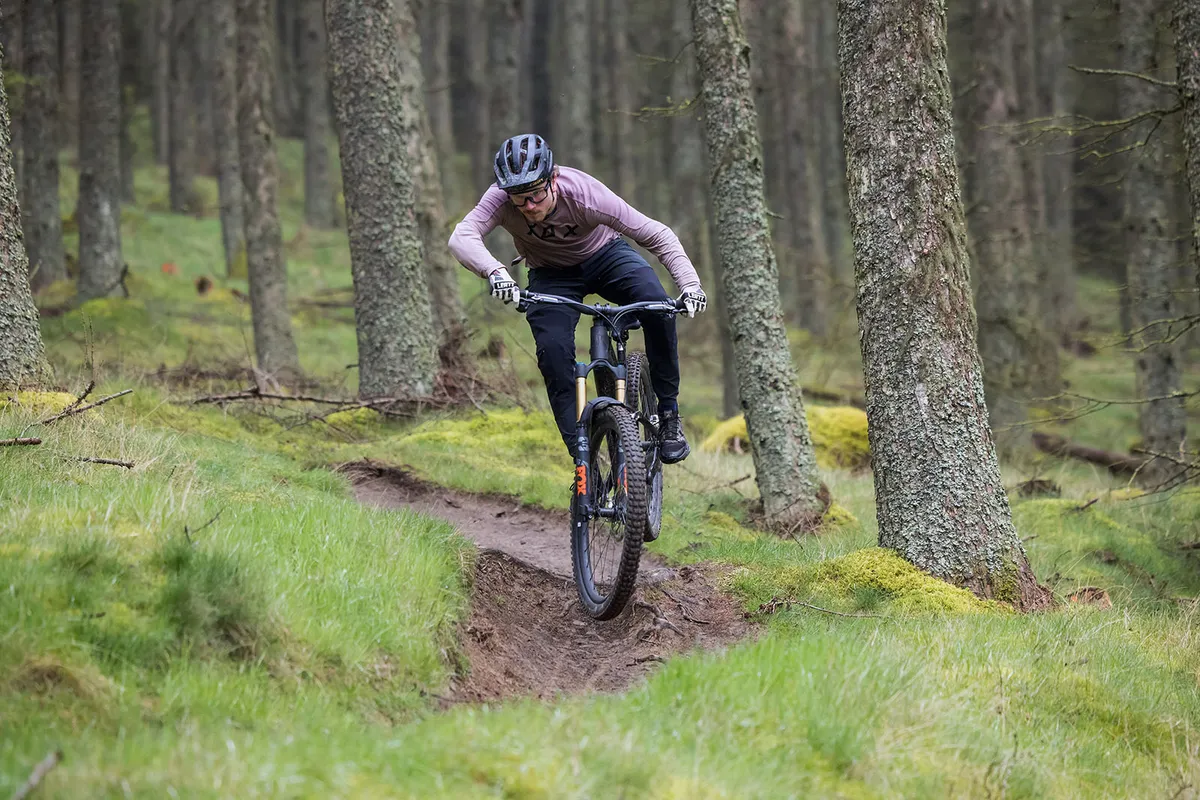
As the name suggests, the key difference between a ‘full-power’ eMTB and a lightweight eMTB is the weight.
While regular electric mountain bikes often weigh upwards of 24kg, most of the best lightweight eMTBs weigh less than 20kg.
These substantial weight savings are achieved by speccing a smaller, less powerful motor and pairing it with a smaller ebike battery. Lightweight eMTB motors tend to have around 20 per cent less torque and battery capacities are commonly one-half to two-thirds that of regular eMTB motors.
What are the advantages and disadvantages of lightweight eMTBs?
Advantages
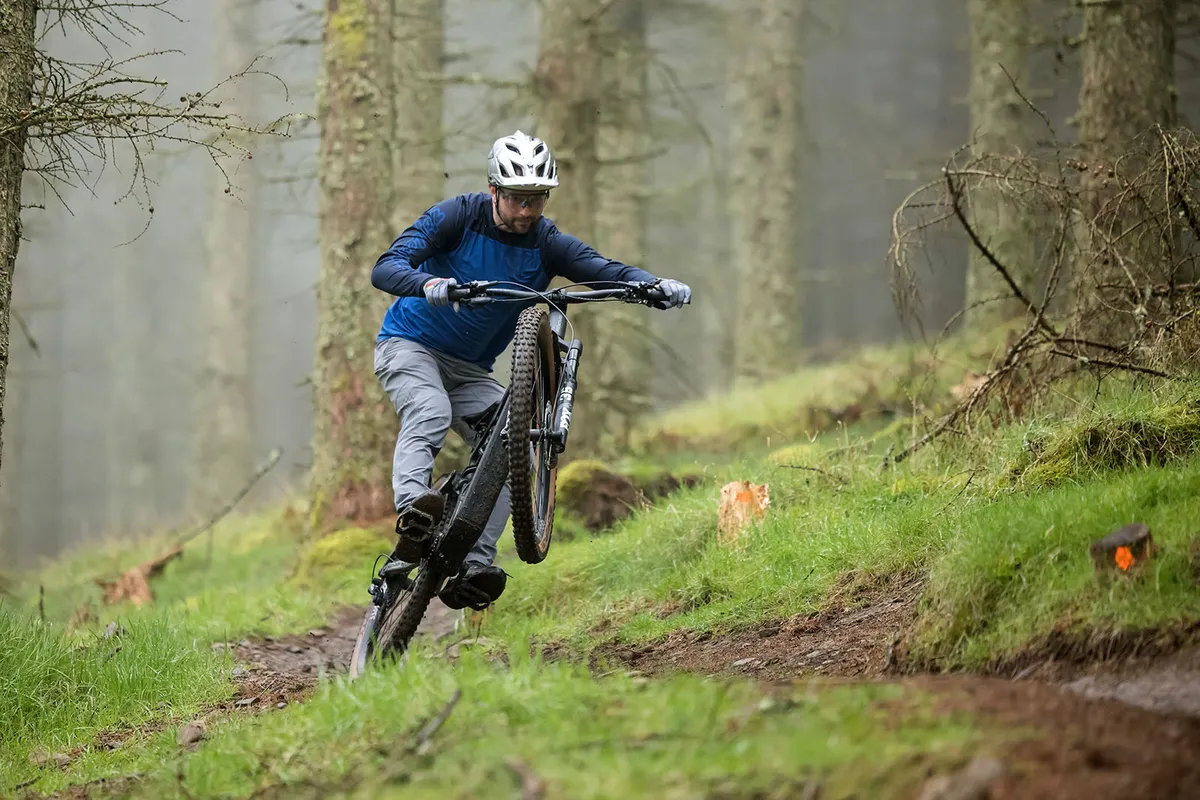
The advantages of lightweight eMTBs all lie in their feel on the trail. Due to their lighter weight, these ebikes handle much more like the best non-assisted mountain bikes than their heavier stablemates.
Despite lacking some all-out power on the climbs, lightweight eMTBs deliver smooth and natural-feeling assistance. This, paired with their reduced weight and improved agility, creates plenty of control on steep and technical climbs.
Pointed downhill, lightweight electric mountain bikes reward riders with a playful ride feel, opening up line-choice and air-time options that may be a struggle on a heavier bike. They are less tiring on longer descents, an advantage that is especially rewarding for smaller riders.
Disadvantages
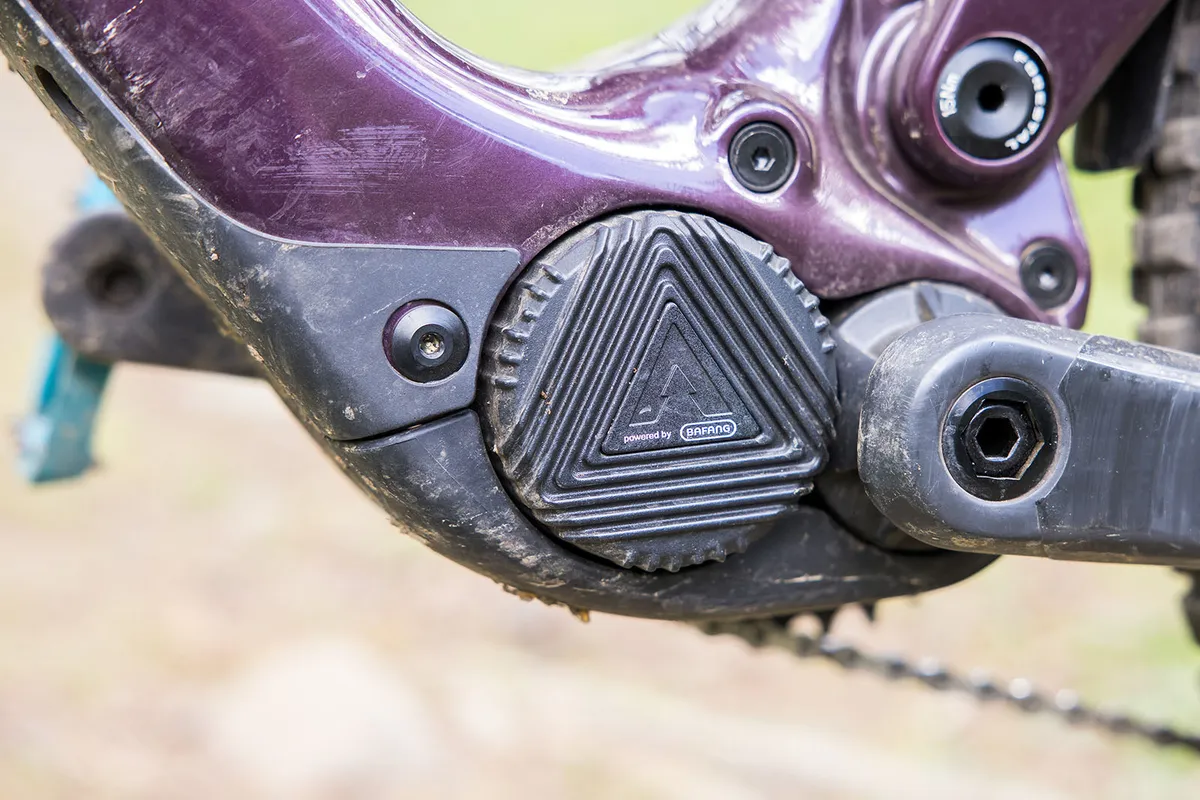
To achieve the reduced weight and natural ride feel, peak motor power and battery capacity have to be sacrificed.
This is a disadvantage for those who rely on big motors and batteries to ride as many laps as possible in a short space of time, or those who want to ride all day with high levels of motor assistance.
While it’s certainly possible to stretch a lightweight eMTB’s range to cover a good day of riding, you will have to pace yourself and settle for less assistance and slower speeds.
Lightweight eMTB motors, power and range
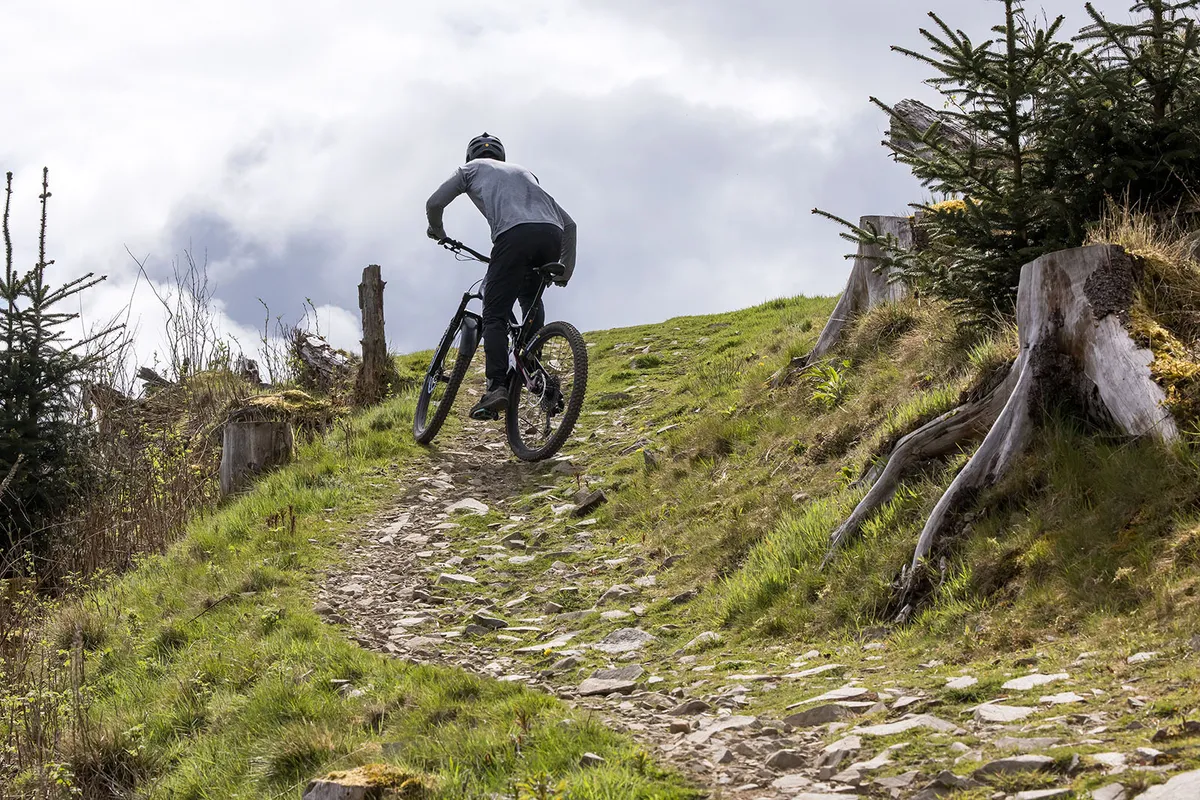
When compared to regular eMTBs, the motors found on lightweight eMTBs are noticeably smaller and quieter, and provide a natural pedalling experience.
Natural pedalling experience means lightweight eMTBs deliver their power smoothly, giving you a helping hand without shunting you uphill.
Regular ebike motors, on the other hand, can sometimes feel jerky and uncontrollable in high-assistance modes due to their higher torque output.
To achieve both the weight savings and the ‘natural’ ride feel, lightweight eMTB motors have less power and torque. Most of the best lightweight motors feature no more than 60nm of torque and pack a maximum power output of around 400 watts.
This reduced output also enables them to use a smaller battery (typically around 320-450Wh) without drastically compromising their range.
Now, that’s a considerable difference compared to full-power motors that all have around 85Nm of torque and around 600W peak power.
However, once you’ve factored in the overall lighter weight and efficient, low-friction motor design, it’s unlikely you’ll be left yearning for more power on a lightweight eMTB.
Lightweight eMTB suspension and geometry
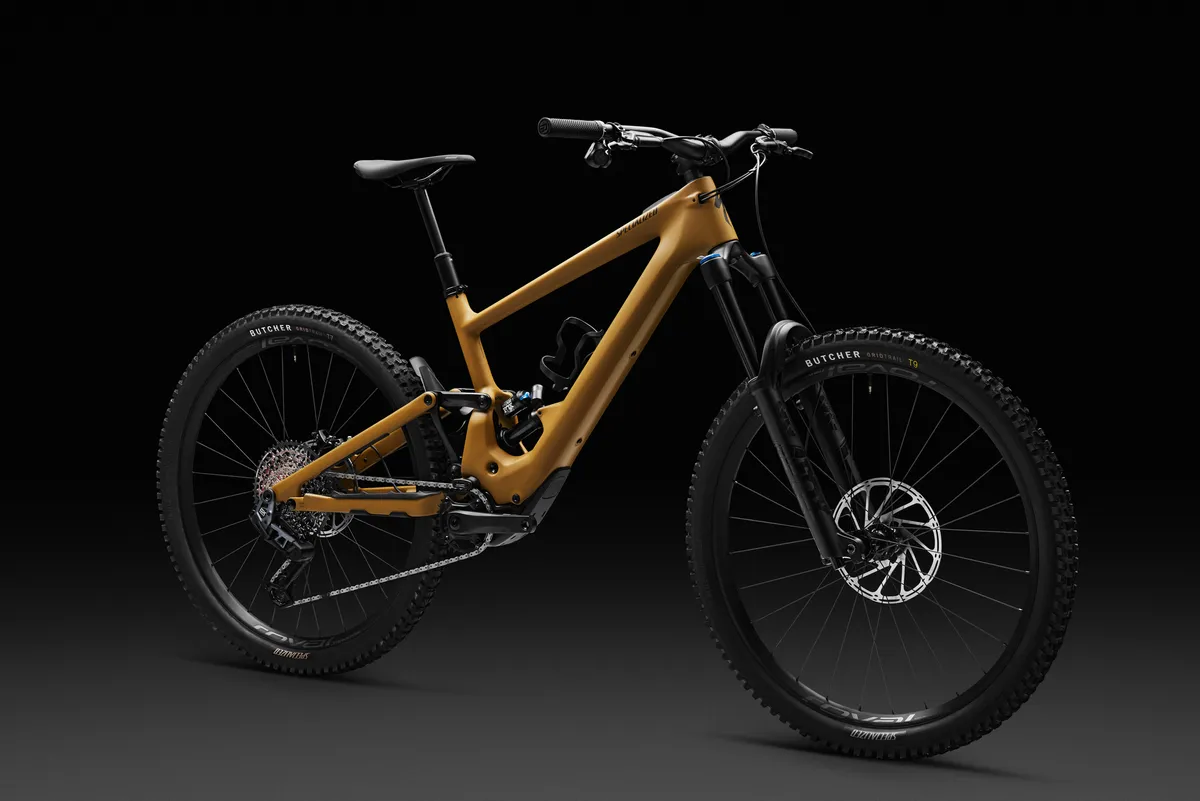
There’s no set amount of travel or geometry for lightweight eMTBs – both will vary from bike to bike, depending on the bike’s intended riding style.
However, most of the best lightweight electric mountain bikes we’ve seen to date sit in the trail bikes category. Here, suspension travel ranges from 140mm to 160mm. Head angles sit around 64 to 65 degrees, combined with relatively balanced 76 to 77-degree seat angles. This helps these bikes excel on a variety of different trails, making them versatile mountain bikes.
Of course, there are outliers at either end of the spectrum. The Scott Lumen, for example, has 130mm travel and blurs the line between trail and cross-country bikes.
The Specialized Kenevo SL, on the other hand, boasts a massive 170mm of travel front and rear and is best considered an electric enduro bike.
